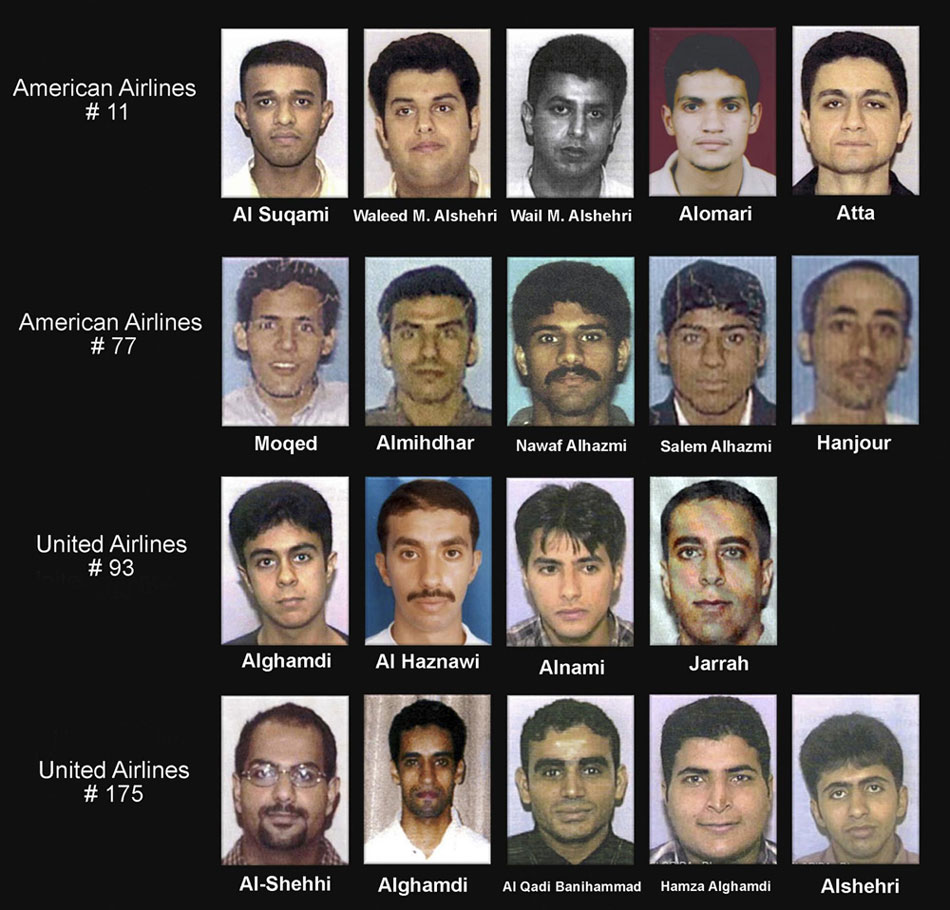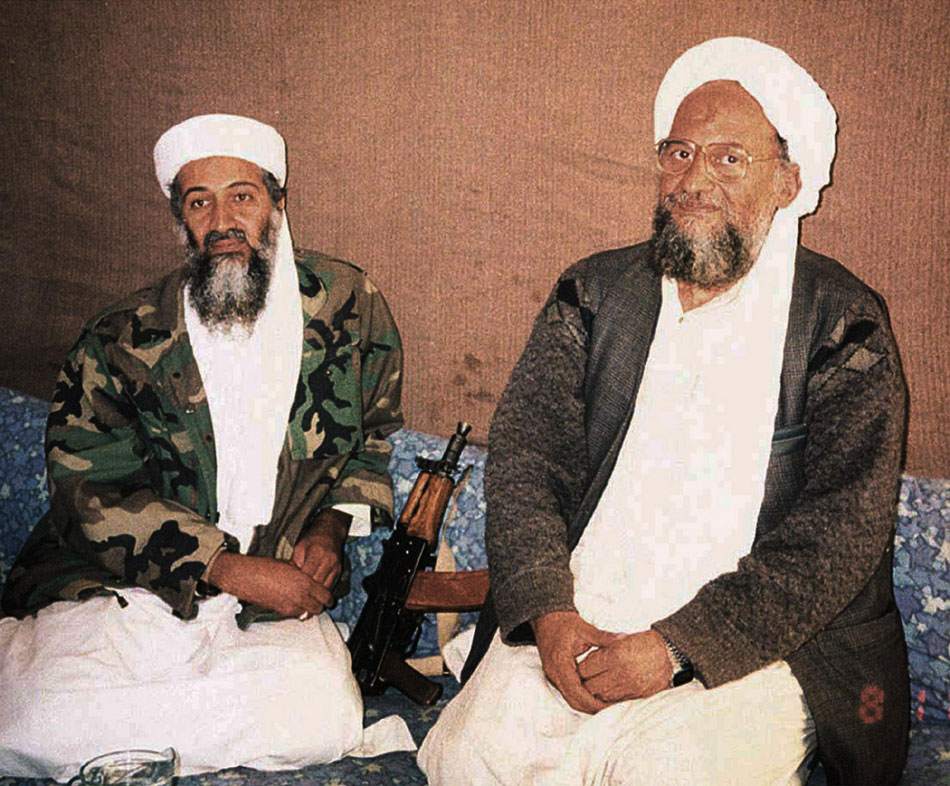9/11 heroes, hijackers and plotters
Updated:2011-09-02 16:51
(Xinhua/Agencies)
9/11 Heroes Not Welcome at Ground Zero
NEW YORK - One week after the city's announcement that 9/11 first responders will not be invited to the 10th anniversary ceremony, firefighters, paramedics, and other volunteers continued to voice their anger, disappointment.
Retired paramedic, Mike Miller, of the financial district said: "this is a total disrespect, we risked our lives and some of us still suffer from those injuries."
Indeed, countless first responders sustained varying degrees of injuries. With the recent denial of federal funding to them this late July, many see this exclusion from the ceremony as evidence that the city is attempting to push to the background their untreated ailments.
The city has promised to hold a ceremony at a later date to honor the 91,000 or so first responders and volunteers who helped in the preliminary search and rescue efforts and the subsequent cleanup in the ensuing 10 months.
But many expressed hesitance to attend. "It just doesn't mean as much, it means less if it's not on September 11th, and this doesn' t change the fact that we were not invited to the actual ceremony," said Katie Jarvez, a first responder from lower Manhattan. "If we went to the ceremony, the slogan 'we'll never forget' will be totally ridiculous because the government did not take care of us," said Cindy Gonzalez, a volunteer from Brooklyn.
The office of Mayor Michael Bloomberg announced in August that given the space constraints, they had to focus on accommodating victims'family members first at the 10-year anniversary ceremony.
Higher cancer risk for 9/11 firefighters
CHICAGO - Male firefighters who were exposed to toxic dust and smoke from the 9/11 attacks on New York's World Trade Center have a 19 percent higher risk of getting cancer of all kinds than colleagues who were not exposed, US researchers said on Sept 1.
The study is the first to look at cancer rates among the all of the exposed firefighters, and the findings may help pave the way for federal health benefits for rescue workers now suffering from cancer nearly a decade after the attacks.
"This study clearly shows World Trade Center exposure in these firefighters led to an increase in cancer," said Dr David Prezant of the Fire Department of the City of New York, whose study was published in The Lancet medical journal.
Studies so far have not found an increased risk of lung cancer, which takes many years to develop, and this study was no exception, finding no increased risk of lung cancer for exposed firefighters versus those not exposed.
Firefighters working in the rubble of the World Trade Center after two planes hit its twin towers on September 11, 2001, were exposed to a several known cancer-causing agents, including polycyclic aromatic hydrocarbons, polychlorinated biphenyls and dioxins.
Prior studies have shown increased rates of post traumatic stress disorder, asthma and other respiratory illnesses among rescue workers. To date, only a handful of smaller studies have shown increased rates of cancer, which can take five to 20 years to develop.
In July, a report released by Dr John Howard, director of the National Institute for Occupational Safety and Health, concluded that there was not yet enough evidence to support a link between the 9/11 attacks and cancer.
Without that evidence, firefighters and other rescue workers can not receive payments for cancer treatments under the James Zadroga 9/11 Health and Compensation Act, which covers illnesses like asthma and other respiratory diseases, but not cancer.
Prezant told reporters he was not sure whether his report would be enough to make the case for federal health benefits for firefighters who developed cancer after the 9/11 attacks, but said Dr. Howard, who is tasked with making the decision, is aware of his study.
ENTIRE POPULATION
Prezant said the study had several strengths, including the fact that it looked at nearly 10,000 male firefighters.
The team only looked at cancers that developed in the first seven years after the World Trade Center attacks, comparing rates among exposed and non-exposed firefighters.
And they made several adjustments to the overall groups to exclude information that might skew the results.
For example, they excluded data on 576 firefighters who were over age 60 on September 11, 2001, because the small number of men in that age group would have made the results statistically unstable. They also excluded data on 32 women, 13 Asians and 8 native Americans for the same reason.
And they excluded data on 85 men who had a prior cancer diagnosis. After adjusting for these factors, they found the exposed firefighters had a 19 percent higher rate of having any type of cancer.
"This shows an increase in all cancers," Prezant said, adding the study was not designed to show increases in a particular type of cancer.
The study did not look at the health impacts on other types of rescue workers, which will be covered in a separate study.
Dr James Melius of the New York State Laborers' Health Fund said the study supports addition of cancer to other federally funded medical disorders offered to 9/11 rescue workers.
Waiting until definitive studies have been completed "would be unfair and would pose a hardship for workers who willingly risked their health by responding without hesitation to the WTC crisis," he said.
For firefighters and others who were exposed and have not yet developed cancer, Prezant advised lifestyle changes that can cut cancer risk -- quitting smoking, limiting alcohol use, getting regular exercise and maintaining a healthy weight.
And he recommends regular cancer screening tests.
"For those who were down there and do not have cancer, this is not an epidemic, but it is an increased risk," Melius said. "So the most important thing to do is enroll in an active cancer prevention and screening program."
9/11 Hijackers
|
 The US Department of Justice released September 27, 2001 the following names and pictures of the 9/11 hijack suspects: (Top - L-R) Satam Al Suqami, Waleed M. Alshehri, Wail Alshehri, Abdulaziz Alomari and Mohamed Atta and were aboard American Airlines Flight 11, which destroyed the World Trade Center. Majed Moqed, Khalid Al-Midhar, Nawaf Alhamzi, Salem Alhamzi and Hani Hanjour were on American Airlines Flight 77, which gouged a hole in the Pentagon building. Saeed Alghamdi, Ahmed Alhaznawi, Ahmed Alnami and Ziad Samir Jarrah were on United Airlines Flight 93, which crashed in Shanksville, Pennsylvania. Marwan Al Shehi, Ahmed Alghamdi, Fayez Rashid Ahmed Hassan Al Qadi Banihammad, Hamza Alghamdi, and Mohald Alshehri were flying on United Airlines Flight 175, which destroyed the World Trade Center. September 11th marks the 10th anniversary of the 9/11 attacks where nearly 3,000 people died when four hijacked airliners were used in coordinated strikes on the Pentagon and the World Trade Center towers. The fourth plane crashed in Pennsylvania. |
9/11 Plotters
